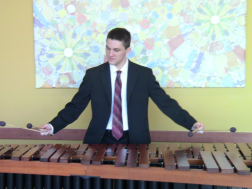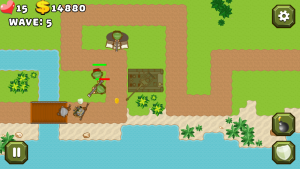
I first began programming when I was 11 years old. I began with Visual Basic 6 and quickly expanded from there - writing anything I could think of, from games to websites. When I was 13 I created a website dedicated to teaching and blogging about Visual Basic 6.
I graduated from Butler University (2014) with a degree in Software Engineering and Music Performance where I was able to explore two fields considered by many to be vastly different. However, I found them to be complementary in many ways, most notably in the creativity required to excel in each. While I was in school, I was fortunate to have two internships that prepared me for professional positions. I interned at Simon Property Group as an Application Developer and at Rook Security as a Software Developer. While at Simon I learned about enterprise software, design patterns, and Java Spring. I was also able to hone my object oriented programming skills. During my internship at Rook Security, I learned Python and was able to work as a member of the development team to develop new cyber security software.

After graduating from Butler, I began my career at Wonderware North as an Application Consultant. At Wonderware North, I worked in small agile teams to deliver and implement custom solutions for customers. I had many roles and developed in a variety of programming languages while utilizing different technologies. I also gathered requirements from customers and ensured quality deliverables. In November 2016, I began working at Walker Information as a Software Engineer.
I'm constantly striving to become a better software engineer. I'm frequently enrolled in online courses through places such as Coursera and MIT OpenCourseWare to futher develop my skills and broaden my knowledge. In my freetime, I often work on multiple projects which can be viewed on my GitHub.

Last Defenders is a game that I've been working on for Android, iOS, HTML, and Desktop. It's a top down, 2d tower defense game with a military theme. Players place soldiers (towers) anywhere on the map and call for aircraft support to stop waves of enemy soldiers from reaching their base. It is slightly different than a typical tower defense game in that the waves of enemies can fire back and kill the soldiers that the player places on the map.

This is a simple app that I wrote that allows users to Merge (and later added Split functionality) PDFs online through a secured connection. Writing this app exposed me to a lot of new things, specifically linux and server administration. I currently have the app running on an AWS EC2 t2.micro instance. Visit the site at www.SafePDFMerge.com.

This was a midterm project for my cryptography class at Butler. We had to implement encryption and decryption for a Shift, Affine, Substitution, and Vigenere Cipher. I migrated this app to Java Spring. You can see the app at apps.EricLeeSanders.com/classical-ciphers.
Bachelor of Software Engineering with Honors
Bachelor of Music in Percussion Performance with Honors
GPA: 3.6
A few courses I have taken at Butler:
I also regularly enroll in online institutions through places such as Coursera and MIT OpenCourseWare.
A few courses I have taken post Butler graduation:
Below is a list of awards and select achievements.
I was nominated for Butler University Student Employee of the Year by my then supervisor Sheri Stormes while working at Irwin Library as a student employee in the Fine Arts Department. I won the award for Butler University Student Employee of the Year and then also won Student Employee of the Year for the State of Indiana, which combines all universities in Indiana.
While working at Irwin Library, I wrote a program to help assist myself and coworkers with a tedious task that involved manually parsing a word document containing information about various pieces of music. The task was to sort this information by instrument instead of composer. With hundreds of pages and thousands of pieces of music, sorting manually would take anywhere from 5 - 10 hours. The program I wrote parsed the word document and sorted the pieces of music. It also utilized the Microsft Translator API to automatically detect and translate text in languages other than English. This program allowed the user to scan through each piece of music within the program in order to ensure correct parsing and to fix any music that was out of order. Ultimately, the program decreased the process from an average of 7.5 hours to 30-45 minutes.